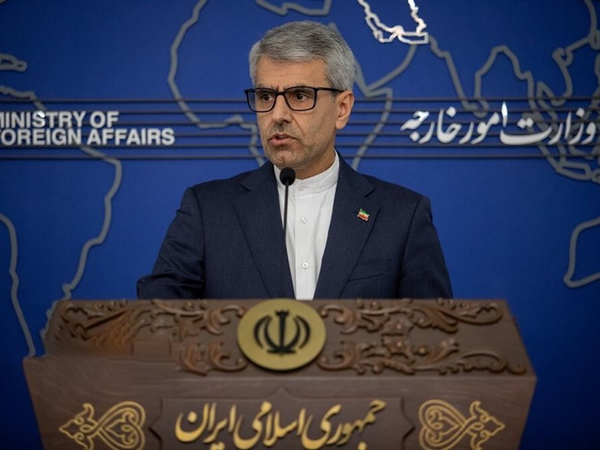Iran has cautioned that insecurity in Syria could have far-reaching consequences, intensifying instability across the region if not quashed.
In a press briefing in Tehran on Monday, Foreign Ministry Spokesperson Esmail Baghaei said external influences in Syria exacerbate the situation, not acknowledging the influence Iran has wielded since the civil war of 2011.
“Any insecurity in Syria will not remain confined to that country,” Baghaei said, indirectly highlighting Turkey’s involvement without naming it explicitly. Meanwhile, Russia has also had a profound influence in the country since the civil war, as the countries all vie for power.
Baghaei described the continued presence of external actors, including the United States, as a major destabilizing factor.
“The US presence in Syria is an act of aggression that has only fueled the resurgence of terrorist activity,” he said.
The comments follow Syria's most significant rebel offensive in years. Hay'at Tahrir al-Sham (HTS), an Islamist militant group, led an operation that seized large portions of Aleppo, Syria's second-largest city. The offensive also extended into neighboring Hama province, marking the Assad government's most significant territorial loss in years. The government is backed by Iran and Russia.
In response, Syrian forces, supported by Russian airstrikes, launched a counteroffensive to reclaim the lost territories. The Russian defense ministry confirmed that its air force had been targeting rebel positions, describing the situation as the most substantial challenge to Syrian government forces in recent years.
Kremlin spokesperson Dmitry Peskov reaffirmed Russia's support for Bashar al-Assad during his routine Monday morning press conference.
At least 25 people were killed in northwestern Syria in airstrikes conducted by the Syrian government and Russia, according to the White Helmets, a rescue service operating in opposition-held areas, early Monday.
Military sources reported that Russian and Syrian jets targeted the rebel-held city of Idlib on Sunday.
Baghaei also called Iran's archenemy Israel a benefactor of the chaos, saying that “the main beneficiary of insecurity in Syria and the region is Israel.” It comes as Israel remains at war with Iran's allies including Hamas in Gaza and until last week's ceasefire, Hezbollah in Lebanon.
The spokesperson reaffirmed Iran’s “advisory presence” in Syria, insisting it is at the invitation of the Assad government, in spite of the presence of the Islamic Revolutionary Guards Corps in Syria.
“This is not new; we’ve been there since the Syrian people faced terrorism,” he said, dismissing speculation that Iran might scale back its role.
The IRGC's involvement extends beyond advisory functions, encompassing direct military engagement and the mobilization of allied militias.
The IRGC, deemed a terrorist organization by countries including the US and Canada, has been instrumental in organizing and commanding various militia units within Syria, contributing significantly to the Assad regime's efforts to regain and maintain control over contested regions.
Baghaei, speaking about Foreign Minister Abbas Araghchi's consultations in Syria and Turkey, said: "In Syria, the goal was to convey Iran's message of support for Syria and the resistance to Syrian officials and to conduct a precise assessment of the latest situation in Syria.”
Araghchi arrived in Turkey early Monday morning as the second destination of his regional tour. Upon his arrival, he commented on his upcoming meeting with Turkish officials, saying: "I will have an extensive meeting with the Turkish foreign minister. There are mutual concerns that need to be discussed."
"Our consultations with Turkey have always addressed various issues. While there are often points of agreement, there are also occasional differences, which is natural and requires dialogue. I hope to reach a unified understanding and agreement on regional issues that will lead to regional stability, preventing Syria or the region from becoming a hub for terrorists again."
Regarding his meeting with Bashar al-Assad, the President of Syria, Araghchi said that he conveyed Iran’s comprehensive support for Assad, the Syrian government, and the army.
